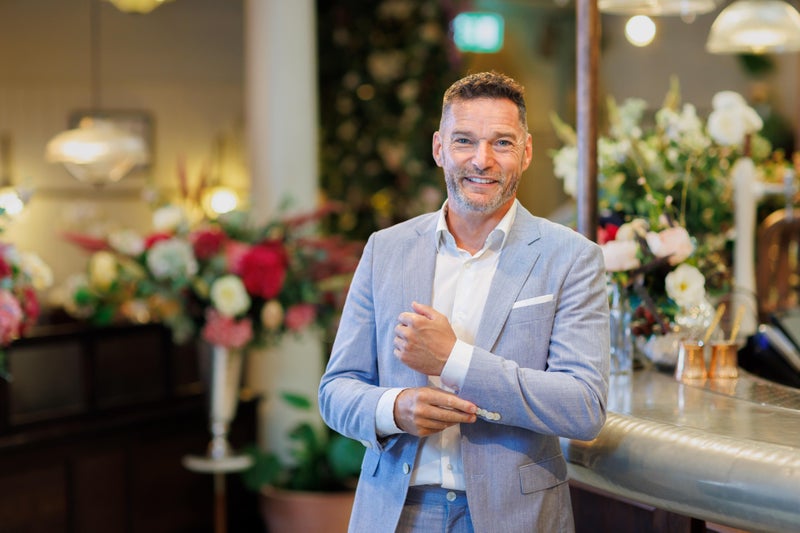Sitting on a plush green couch with my partner, in a room covered head-to-toe in ornate paintings and a fire softly crackling beside us, there was a sense of anticipation. We were at a romantic hotel for the weekend, yet, we were silent, our laptops were open, and our heads were buried in spreadsheets. I wondered what we must’ve looked like to anyone who walked past. Whether they would shake their heads and judge us for spending time with our screens instead of each other. The irony, however, was that we were actually working on our relationship at that very moment.
![[Matt Cook: Every couple needs an annual relationship review]](https://metro.co.uk/wp-content/uploads/2025/02/SEI_239730658-82bc-e1739447234498.jpg?quality=90&strip=all&w=646)
We were doing our annual relationship review. Emily and I met six years ago, the old school way: through a mutual friend. I’d been single for 10 years and remember describing meeting Emily as ‘the day my soul sighed’. The attraction was instant; the flirting, outrageous. In fact, Emily was the first to ask me out, saying we should place our trust in a friend over the algorithm. I loved how direct she was. I’d send a spicy message and fear I’d gone too far – but then she’d reply instantly, raising the bar.
![[Matt Cook: Every couple needs an annual relationship review]](https://metro.co.uk/wp-content/uploads/2025/02/SEI_239730660-2286.jpg?quality=90&strip=all&w=646)
There were no games, like waiting to text back to avoid seeming too ‘keen’. We obviously liked each other and didn’t pretend otherwise. Early on, we talked about what we wanted from a relationship. Did we want to get married? Did we want kids?. It was clear we were both interested in what it took to build a great partnership and we knew this wouldn’t happen accidentally. It would be something we would continually have to nurture.
![[Matt Cook: Every couple needs an annual relationship review]](https://metro.co.uk/wp-content/uploads/2025/02/SEI_239730657-7b72.jpg?quality=90&strip=all&w=646)
We would need to be committed to honest communication, even when it was painful, and allow each other and our relationship to change. And to not listen to others’ advice, when we know what feels right for us. As a company culture consultant, I spend my days helping organisations create inspiring workplaces where people can flourish. So I find it strange that there’s more structure and support for work relationships than romantic ones.
![[Matt Cook: Every couple needs an annual relationship review]](https://metro.co.uk/wp-content/uploads/2025/02/SEI_239730823-aa18.jpg?quality=90&strip=all&w=646)
There are 121s, team check-ins, status updates, codes of conduct, and yet, with romantic relationships, we often see it as a sign that something is wrong if we need support, as if these types of relationships should be easy. In my work I use the Four Burners theory as a way to think about work/life balance. You have four ‘burners’: family, friends, work, health, and the idea is that you can only realistically have two or three burning bright at any one time or you’ll burn out.
![[Matt and his wife in formal wear, standing on a balcony with the sea behind them]](https://metro.co.uk/wp-content/uploads/2025/02/2da286cc-b4a1-4dd1-ad5e-953baea28e7b-ddb9-e1739448304697.jpeg?quality=90&strip=all&w=646)
I’d listened to a podcast where a couple described how they used the burners as a framework to manage their relationship dynamic – and it really sparked something for me. I loved the idea of reviewing a relationship to ensure everyone’s needs were met. Emily was immediately on board and we decided to focus on themes like communication, disagreements, fun, and sex. On our one year anniversary, we completed our first review and since then, we have conducted one every year without fail.
It’s like an annual appraisal. We both individually rate different aspects of our life – what’s working, what could improve – and use our separate scores to start a conversation. First, we rate statements like ‘My partner listens when I talk’; ‘I’m satisfied with the quality of sex’; and ‘I feel loved even when we argue’ on a scale of 1-5 in silence and adding notes. Then we take turns reading a statement, revealing our number, and hearing the other’s. This part is generally scarier – sometimes we’re aligned and sometimes there’s a disconnect.
We then have the chance to talk openly, express feelings and explore how that number could be higher. At the end, we capture key takeaways and seal it with a kiss. In the first year, we found that we were both writing 5/5 for almost everything. We were still in our honeymoon phase so everything was seen through rose tinted glasses! From then on, we decided that you could only put a 5 if there is literally no possible way it could be improved.
It hasn’t all been smooth sailing, though. By the third and fourth year, our scores had naturally drifted lower and we started noticing some recurring patterns. For example: I struggle to understand my emotions in the moment, and need time to process them. This means I often appear calm when I’m actually deeply upset, which makes it hard for Emily to understand how I actually feel. On the other hand, Emily needs to talk things through out loud, which can be overwhelming for me if I don’t have the energy to help process her emotions, and I can come across as dismissive.
Finance also crops up frequently. Our businesses are at different stages, which has meant there’s not only a difference in wages but it changes year-to-year. We both work just as hard but balancing feelings of ‘fairness’ and ‘ownership’ over money can still be challenging. Following the most recent review, Emily proposed a shared financial system called six Jars. In effect we have a jar for living (rent, bills etc), saving (joint savings), playing (independent money), dating (joint fun), giving (charity) and learning (education).






























